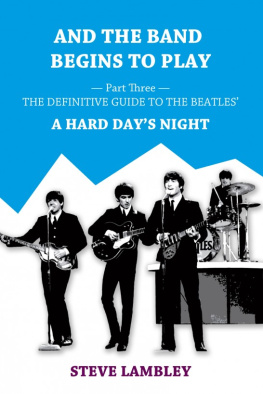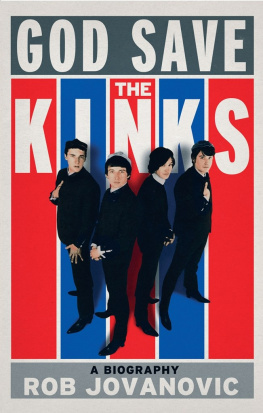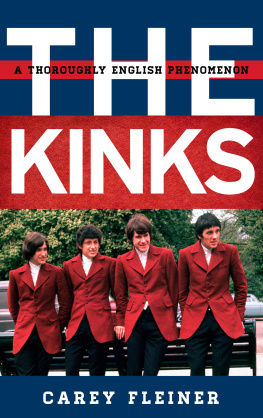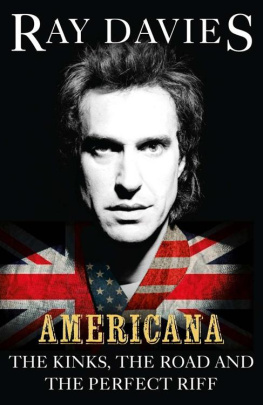Preservation: The Kinks' Music 1964-1974
Andrew Hickey
Published byAndrew Hickey
SmashwordsEdition
CopyrightAndrew Hickey 2012, all rights reserved.
All song lyricsare copyright their respective owners, and are quoted for reviewpurposes in accordance with fair dealing and fair use laws. Noclaim over them is asserted.
This book isalso available in print at most online retailers.
BY THE SAMEAUTHOR:
Sci-Ence!Justice Leak!
The Beatles InMono
AnIncomprehensible Condition: An Unauthorised Guide To GrantMorrison's Seven Soldiers
The Beach BoysOn CD Vol 1: The 1960s
MonkeeMusic
Doctor WatsonInvestigates: The Case Of The Scarlet Neckerchief (ebookonly)
Classic Albums:Pet Sounds (ebook only)
Ideas AndEntities: A Collection Of Short Stories
For Holly
CONTENTS
It's become aclich to say that the Kinks are the most underrated of the great1960s beat groups, but that clich has some truth to it. While themusic the Kinks made during their artistic peak, from roughly 1966through 1970, has become accepted as essential listening by mostcritics, there is no real body of criticism looking at theevolution of the band's sound.
While one couldquite easily build up a substantial library of books analysing thework of peers like the Beatles, Rolling Stones, the Who or BobDylan, there are no real works of criticism dealing with the musicof the Kinks. This book is an attempt to make a start towardsrectifying that a start that with luck others will build on.
This is acritical analysis of every song the band recorded in the studiobetween 1964 and 1974 which has had a legal release (so liverecordings, bootlegs and so on aren't covered unless they havebeen released as tracks on studio albums.) In each case, I am usingthe most recent CD issues (for the Pye albums, the deluxe multi-CDeditions with both mono and stereo mixes and a large number ofbonus tracks.) For all the 1960s recordings except Arthur I amtaking the mono versions as the definitive ones most records inthe 60s were mixed with mono in mind, and certainly the mono mixessound better but there is usually little difference, and I havenoted when any major differences have jumped out after listening toboth mixes of a given track.
This bookdoesn't pretend to objectivity I will say frankly where I dislikea song, even when that is a favourite of many, and likewise I willmake it clear when I think a song is underrated or unfairlyoverlooked.
It is also notmeant to be a comprehensive reference to the band's career. This isnot a listing of session dates or musicians who played onparticular tracks. That information is included if it's relevant,but thorough guides to those things are available elsewhere, and Ihave not attempted to duplicate them here.
What this isintended to be is a song-by-song look at the band's work duringtheir most productive and artistically successful decade, lookingat where it succeeds and where it fails, and trying to analyse how.I hope that it will help people listen to the Kinks' music with newears, and find new subtleties in it, as writing the book has forme.
The Kinks'first album, titled simply Kinks, is a mish-mash ofdifferent styles, only some of them effective. While Ray and DaveDavies had been playing together for many years, and had beenworking with bass player Pete Quaife for some time, the finalline-up of the band, with drummer Mick Avory, had only settled downafter the release of the band's debut single, a lacklustre cover ofLong Tall Sally, in February 1964. Avory was so new to theband that he doesn't even appear on much of the album, beingreplaced by session player Bobbie Graham.
The band'searly singles set the pattern for this album. Long TallSally was a semi-competent cover of an American R&Bclassic, You Still Want Me, the band's second single, wasdecent Merseybeat-by-numbers, and You Really Got Me, theirthird, was one of the greatest singles of all time, a crunchygarage-rock track with one of the best riffs ever committed torecord.
And the albumis as much of a mixed bag as the singles. Like many British bandsin 1964 and '65, the Kinks were attempting to sound like theAmerican blues music of a previous generation. The problem is thatlike many of those bands, the Kinks were not particularly strongeither vocally or instrumentally, and simply couldn't carry theweight of this material. When Muddy Waters or Bo Diddley sing "I'mA Man", the implicit meaning is "so don't call me 'boy'". Whenwhite teenagers from the Home Counties sing the same material, itcomes out sounding more like "I'm a grown man, now, mummy, so youcan't make me tidy my room! "
The best of theBritish R&B-oriented bands, like the Animals or the Zombies orthe Spencer Davis Group, got away with this by having astonishinglygood vocalists - and all of these bands soon moved away from theR&B sound. The Kinks, too, would make this move very soon, butin 1964 there was little to impress on their first album.
And while theydon't add very much to the sound, it should probably be mentionedthat among the session players who played on this album are JimmyPage (who added acoustic rhythm guitar on a couple of tracks butdid not play any leads, despite some reports to the contrary) andJon Lord.
TheAlbum
Beautiful Delilah
Writer: ChuckBerry
Lead Vocalist:Dave Davies
The albumopener is a perfect example of where most British blues bands ofthe time were going wrong. A cover version of one of Chuck Berry'smore minor works, this misses everything that makes Berry'soriginal worth listening to - the wit in Berry's vocals, and hisdistinctive guitar work.
It does have apunk energy, especially in Dave Davies' incoherent vocals, but evenso it sounds forced. This is garage band music in a bad way - it'sthe work of teenagers who aren't very good yet, and who loveR&B music without knowing what it is they love about it.
SoMystifying
Writer: RayDavies
Lead Vocalist:Ray Davies
This is a muchbetter attempt at the same kind of thing. It appears to have beenwritten off the Rolling Stones' version of It's All OverNow, but has a more country-blues flavour, reminiscent both ofearly Chuck Berry tracks like Maybelline and of Carl Perkinsrockabilly. The lead guitar part, in particular, has some unusualchoices that point the way forward to the band's laterexperimentation with country music on albums like MuswellHillbillies.
The song, andthe track, are still not especially good, but even on aby-the-numbers blues track like this Ray Davies is starting todevelop a distinctive voice which suits the band far better thanthe cover versions they do.
JustCan't Go To Sleep
Writer: RayDavies
Lead Vocalist:Ray Davies
A simpleexercise in a girl-group style, this is the kind of thing thatbands like the Swinging Blue Jeans were having hits with at thetime, and is a very competent piece in the style, but completelyunmemorable except for the key change down a tone for the middlesection, which is an unusually-long twelve bars. The hook linesounds like an early attempt at the hook for Stop YourSobbing.
LongTall Shorty
Writers: DonCovay and Herbert C Abramson
Lead Vocalist:Dave Davies
This song wasoriginally recorded by Tommy Tucker earlier in 1964 as a follow-upto his hit single Hi-Heeled Sneakers, and has almost exactlythe same melody as that track. Probably the best of the R&Bcovers on this album, this has some very creditable harmonicaplaying from Ray Davies -- nothing technically challenging, butwith far more feeling than much of the music elsewhere on thealbum. It's still fundamentally pointless though, especially incomparison with Tucker's much more interesting original.
ITook My Baby Home
Writer: RayDavies
Lead Vocalist:Ray Davies
Next page
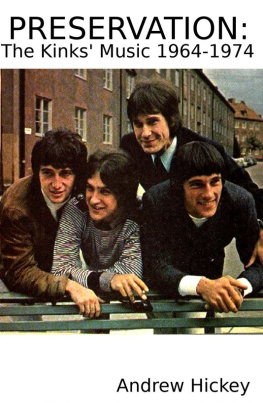
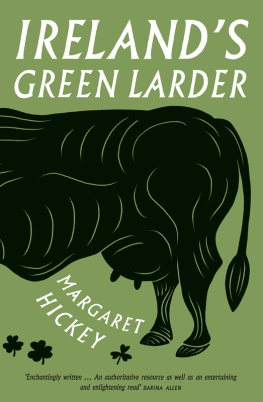
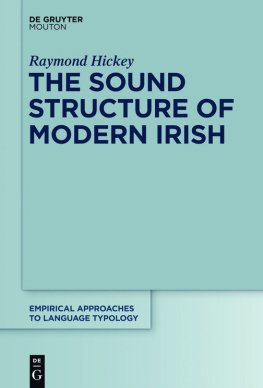

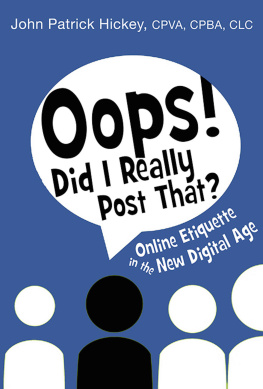

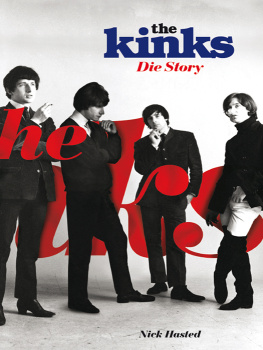
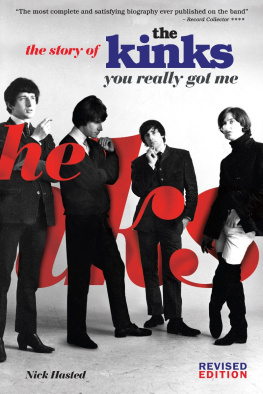
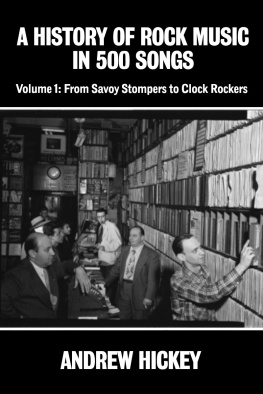
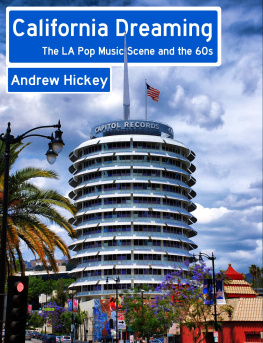
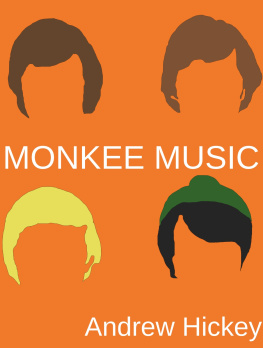
![Lambley - And the Band Begins to Play: [Part9 The Definitive Guide to the Beatles White Album]](/uploads/posts/book/213743/thumbs/lambley-and-the-band-begins-to-play-part9-the.jpg)
